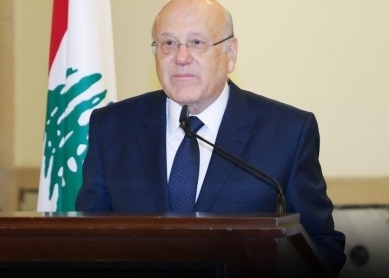
(Photo : X.com)
Lebanon PM Najib Mikati backs ceasefire agreement
- and Hezbollah have agreed to a ceasefire, set to commence early Wednesday, ending over a year of hostilities.
- The agreement includes the withdrawal of Israeli troops from southern Lebanon within 60 days and Hezbollah fighters moving north of the Litani River.
- The monitoring mechanism will be expanded to include the U.S. and France, who will jointly determine if a violation has occurred.
- Despite the ceasefire, Israel insists it will strike Hezbollah if it identifies threats to its security, a provision not agreed upon by Lebanese officials.
In a significant development, Israel and the Lebanese armed group Hezbollah have agreed to a ceasefire, set to commence early Wednesday. This truce, proposed by the United States, aims to conclude over a year of hostilities between the two parties. The details of the deal, which is yet to be published, were announced by U.S. President Joe Biden, who expressed hope that it would lead to a permanent cessation of hostilities.
The agreement, a product of negotiations led by U.S. mediator Amos Hochstein, spans five pages and includes 13 sections. A senior Lebanese political source, privy to the matter, provided insights into the key provisions of the deal. The cessation of hostilities is scheduled to begin at 4 a.m local time (0200 GMT) on Wednesday. Both Israel and Hezbollah are expected to cease fire by Wednesday morning.
The senior Lebanese source stated that Israel is expected to halt all military operations against Lebanese territory, including civilian and military targets, and Lebanese state institutions, through land, sea, and air. Similarly, all armed groups in Lebanon, including Hezbollah and its allies, are expected to cease operations against Israel.
Key Provisions of the Ceasefire
The agreement also includes the withdrawal of Israeli troops from southern Lebanon within 60 days. This withdrawal is expected to be gradual, allowing civilians on both sides to return home. Lebanese officials had earlier advocated for a swift withdrawal of Israeli troops within the truce period. They now anticipate the withdrawal to occur within the first month.
Hezbollah fighters are expected to vacate their positions in southern Lebanon and move north of the Litani River, approximately 30 kilometers north of the border with Israel. This withdrawal will not be public, and it remains unclear whether the group will dismantle its military facilities or whether the fighters will retain their weapons as they withdraw.
In the wake of Hezbollah's withdrawal, the Lebanese army plans to deploy troops south of the Litani River, with an estimated 5,000 soldiers stationed there, including at 33 posts along the border with Israel. This deployment is seen as the first challenge, followed by the issue of locals wanting to return home, given the risks of unexploded ordnance.
Monitoring Mechanism and Potential Breaches
One of the contentious issues in the final days leading to the ceasefire's conclusion was the monitoring mechanism. The existing tripartite mechanism between the United Nations peacekeeping force in southern Lebanon (UNIFIL), the Lebanese army, and the Israeli army will be expanded to include the U.S. and France, with the U.S. chairing the group.
Israel will be expected to flag potential breaches to the monitoring mechanism, and France and the U.S. will jointly determine whether a violation has occurred. A joint statement by Biden and French President Emmanuel Macron stated that France and the U.S. would work together to ensure the deal is fully applied.
Despite the ceasefire, Israeli officials have insisted that the Israeli army would continue to strike Hezbollah if it identified threats to its security, including transfers of weapons and military equipment to the group. Israeli Prime Minister Benjamin Netanyahu echoed this sentiment in a televised address, stating that Israel would strike Hezbollah if it violated the deal. However, Lebanese officials have stated that this provision is not part of the agreed deal and that they would oppose any violations of its sovereignty.
The ceasefire agreement is reminiscent of the 2006 Lebanon War, also known as the July War, between Hezbollah and Israel. The 34-day military conflict resulted in a United Nations-brokered ceasefire. However, the current ceasefire, brokered by the U.S., aims to be a more permanent solution to the ongoing hostilities. The world watches with bated breath, hoping for a peaceful resolution to this long-standing conflict.









